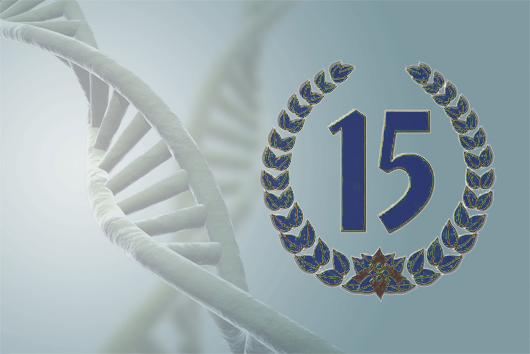Search Results
8 results for pharmacogenomic
Precision Medicine and Public Health: Improving Health Now While Generating New Knowledge for the Future

In a previous post, I commented on the importance of a public health perspective to ensure the success of the proposed precision medicine large national research cohort. Here I offer additional thoughts on the need to balance short term public health gains with long term knowledge generation from this effort.
Posted on by100,000 Studies: A Milestone for Human Genome Epidemiology (HuGE) and the HuGE Navigator

The HuGE published literature database now contains more than 100,000 citations, a milestone reached at the end of 2014. The Office of Public Health Genomics has compiled this database since 2001 via weekly systematic sweeps of PubMed performed by a single curator. For the first five years, a complex PubMed query was used to identify
Posted on byCelebrating a Decade of Evidence-Based Evaluation of Genomic Tests

CDC’s Office of Public Health Genomics (OPHG) launched the Evaluation of Genomic Applications in Practice and Prevention Initiative (EGAPP) in 2004. The independent EGAPP Working Group (EWG) celebrated a decade of achievements and accomplishments at their meeting in Atlanta on October 27-28, 2014. The EWG is comprised entirely of volunteers, encompassing multiples areas of expertise
Posted on byWhen Should We All Have Our Genomes Sequenced?

Recently, George Church, a prominent genomics researcher and leader of the Personal Genome Project asked why so few people are opting to inspect their genome. The cost and accuracy of genome sequencing have certainly improved dramatically. He clearly sees the health benefits of whole genome sequencing. He states “we should avoid being judgmental of people
Posted on by 2 CommentsPublic Health Impact of Genome-Wide Association Studies: Glass Half Full or Half Empty?

Genome-wide association studies (or GWAS) are large-scale genetic investigations of human disease that measure simultaneously hundreds of thousands of genetic variants scattered throughout the human genome. GWAS burst onto the scientific scene in the mid 2000’s. Propelled by technological advances and falling prices, GWAS have revolutionized the search for genetic influences on common diseases of
Posted on byPublic Health Genomics: 15 Years On

In 2012, the United States and the United Kingdom marked 15 years of public health genomics, a multidisciplinary field that deals with the effective and responsible translation of genome-based science to improve population health. Fifteen years ago, a new era of personalized healthcare and disease prevention seemed only around the corner. However, the promise of
Posted on byCan We have Our Genome and Eat It Too? Deploying the Whole Genome Sequence In Medicine and Public Health, One Base Pair At A Time.

This post was originally published November 3, 2011 but is still very much applicable in 2013! The popular proverbial saying “you cannot have your cake and eat it too” implies that one cannot consume something and preserve it at the same time–in other words, we cannot have it both ways. Well, for once, maybe we
Posted on by 4 CommentsA Million Hearts, A Thousand Genes, and Your Family History

In September 2011, the US Department of Health and Human Services announced a new initiative to prevent 1 million heart attacks and strokes in the United States in the next 5 years. This campaign will implement proven, effective, and inexpensive interventions in both clinical and community settings. In clinical practice, it will improve management of
Posted on by 3 Comments

